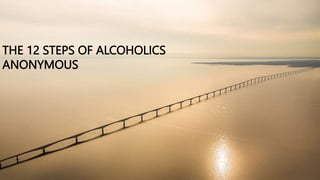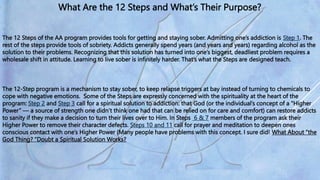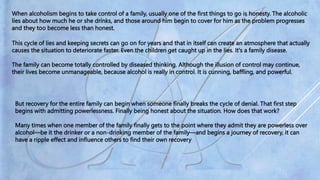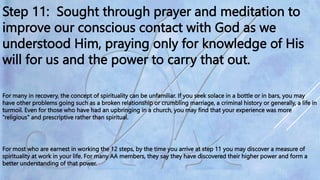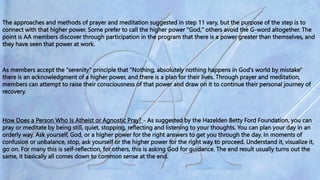The document outlines the 12 steps of Alcoholics Anonymous (AA), emphasizing their purpose as tools for achieving and maintaining sobriety. Key steps include admitting powerlessness over alcohol, recognizing a higher power, taking a moral inventory, and helping others as a way to foster personal growth. It highlights the spiritual framework that supports both alcoholics and their families in their recovery journey.
